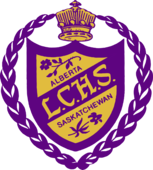Policy 10
POLICY MAKING
The Board is responsible for the development of policies in keeping with the requirements of government legislation and the values of the electorate. In order to meet its responsibility, the Board shall establish and maintain written policies that express its philosophical beliefs in support of public education and provide effective direction and guidelines for the action of the Board, the Director, staff, students, electors, and other agencies. Board policies constitute the will of the Board in determining how the Division will operate.
The Board shall be guided in its approach to policy making by ensuring adherence to the requirements necessary to provide public education and compliance with The Education Act, 1995, related regulations, and other applicable provincial legislation.
Board policies shall provide an appropriate balance between the responsibility of the Board to develop the broad guidelines to guide the Division and to provide the opportunity for the Director to exercise professional training and experience in the administration of the Division.
The Board shall adhere to the following stages in its approach to policy making:
Planning
The Board, in cooperation with the Director, shall assess the need for a policy, as a result of its own monitoring activities or on the suggestion of others, and identify the critical attributes of each policy to be developed.
Development
The Board may develop the policy itself or may delegate the responsibility for development to the Director.
Implementation
The Board is responsible for the implementation of policies governing its own processes. The Board and Director share the responsibility for the implementation of policies relating to the Board-Director relationship. The Director is responsible for the implementation of all other policies.
Evaluation
The Board, in cooperation with the Director, shall evaluate each policy in a timely manner in order to determine whether or not it is meeting its intended purpose.
Specifically,
- Parent groups, teachers, administrators, school community councils, student councils, trustees, and others interested in the educational system, are invited to submit suggestions or recommendations in regard to new or existing policy at any time. Such suggestions or recommendations shall be submitted in writing to the Director and include a brief statement of purpose or rationale.
- Normally, requests for new policy or amendments to existing policy originating from schools will be directed through the Principal to the Director.
- Policy development or revision may also be initiated by the results of public consultation, survey, needs assessment, or policy evaluation.
- The Director or designate shall be responsible to prepare a proposal.
- In developing policy recommendations the Director or designate will consult regarding policies directly affecting the welfare or working conditions of all employees. Consultation will take place with one or more of the following:
- Supervisors of the group directly concerned
- Individuals of the group concerned or
- An ad hoc committee comprising the supervisor(s) or members of the group concerned. Such a committee is to be formed at the discretion of the Director.
- In developing policy recommendations the Director or designate will consult regarding policies directly affecting the welfare or working conditions of teachers. Consultation will take place at the Division level through the School Administration, with draft policies presented at staff meetings by the Director or designate, or Principals. Staff comments and recommendations regarding the draft policies will be forwarded in writing by the Principal to the Director, or forwarded in writing to the Director by any staff member.
- The Director may, at their discretion, ask others to participate in consultation meetings.
- The Director will determine the time and place for consultation.
- When appropriate, the Director shall seek legal advice on the intent and wording of the policy.
- After research and appropriate consultation, the Director will present to the Board, in closed session or in a Committee of the Whole meeting, a draft policy. This phase of the policy development process will afford the Board an opportunity to ask questions about the rationale and content of the draft policy and to conclude if the policy were acceptable.
- Following "preliminary discussion," the Board may refer the draft policy back to the Director for revision or it could agree to carry the draft policy forward for consideration for "first reading."
- In developing policy recommendations the Director or designate will consult regarding policies directly affecting the welfare or working conditions of all employees. Consultation will take place with one or more of the following:
- In approving policy, the Board will always work from the broadest, most general statement of policy, and will proceed to develop progressively more specific policies until it is satisfied that it has achieved the degrees of definition necessary in the policy area under consideration.
- Only those policies which are adopted and recorded in the minutes constitute the official policies of the Board.
- In the absence of existing policy, the Board may make decisions, by resolution, on matters affecting the administration, management, and operation of the Division. Such decisions carry the weight of policy until such time as specific written policy is developed.
- The Board may request the Director to change an administrative procedure to a draft Board policy. In doing so, the Board will provide rationale.
- The Director must develop administrative procedures as specified in Policy 11 and may develop such other procedures as deemed necessary for the effective operation of the Division; these must be in accordance with Board policies.
- The Board may also delete a policy and subsequently delegate the Director authority over this area. The Director may choose to then develop an administrative procedure relative to this matter.
- The Director must inform the Board in a Board agenda of any changes to administrative procedures.
- The Director shall arrange for all Board policies and administrative procedures and subsequent revisions to be posted on the Division’s website, in a timely manner, for staff and public access and to be distributed electronically to all Principals and Division Office staff.
- The Board shall review each policy on a 3-year rotating basis.
- Any policy adopted by the Board may be amended or suspended in one of the following ways:
- By a majority vote of the members of the Board present at any regular meeting, provided notice of motion to amend the policy was given at the previous regular meeting of the Board or at a special meeting occurring not less than seven days before the meeting at which the proposed amendment or suspension is to be considered;
- By a majority vote of the members of the Board present at any special meeting called to consider policy statements;
- By a unanimous vote of all the members of the Board at meetings other than those included in 14.1 and 14.2 above.
Legal Reference: Section 85, 87 Education Act, 1995; Section 38 The School Division Administration Regulations
Adopted: June 2007
Last Reviewed: May 25, 2022





























